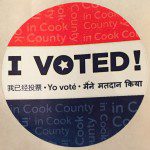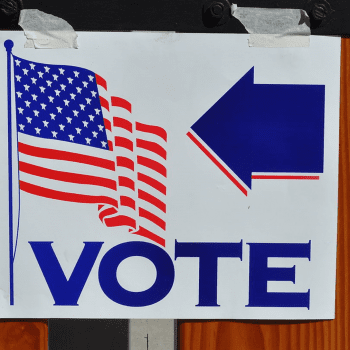And by segregation, I only partly mean racial segregation. I also mean those various other ways in which cities, counties, regions, differ in socio-economic class, religious affiliation, and all those other differences that predict political affiliation.
Consider that there is a well-established requirement that states, when determining Congressional districts, set district boundaries in such a way as to ensure that there are likely to be, considering the black population of the state as a whole, a roughly proportionate number of black Representatives in Congress. Similarly, there are Hispanic districts drawn around predominantly-Hispanic areas — in Chicago this means pulling together two separate parts of the city into one C-shaped district. (I had always understood this to be an intentional means of creating a majority-Hispanic district to secure the election of a Hispanic Representative; Wikipedia labels this as an instance of “packing” or intentionally diminishing Hispanic influence in other districts. Whether that’s true or not depends on whether you believe that, as a minority ethnic group in other districts, Hispanics would have had power that they lose in the present situation — but what is true is the the long-time Representative, Luis Gutierrez, views himself very much as primarily a representative of Hispanics, and immigrants and immigrant causes specifically.)
Now imagine that those racial concentrations, and ethnic concentrations, didn’t exist. Imagine that Blacks were 12% of the U.S. population, and 12% of the population of every county, city, township, and neighborhood. Would the courts and the federal government abandon the idea of trying to preserve a means of ensuring “black districts”? And, separate from what they would or would not do, should there be anything other than government indifference?
Now, further imagine that the working class, the evangelicals, and every other subgroup that tends to vote Left or Right, were evenly spread out, in such a manner that, if the country tilts Republican, we have a fully Republican House and Senate, and if the country tilts Democratic, it’s the reverse.
Would our system of representation by district still make sense?













